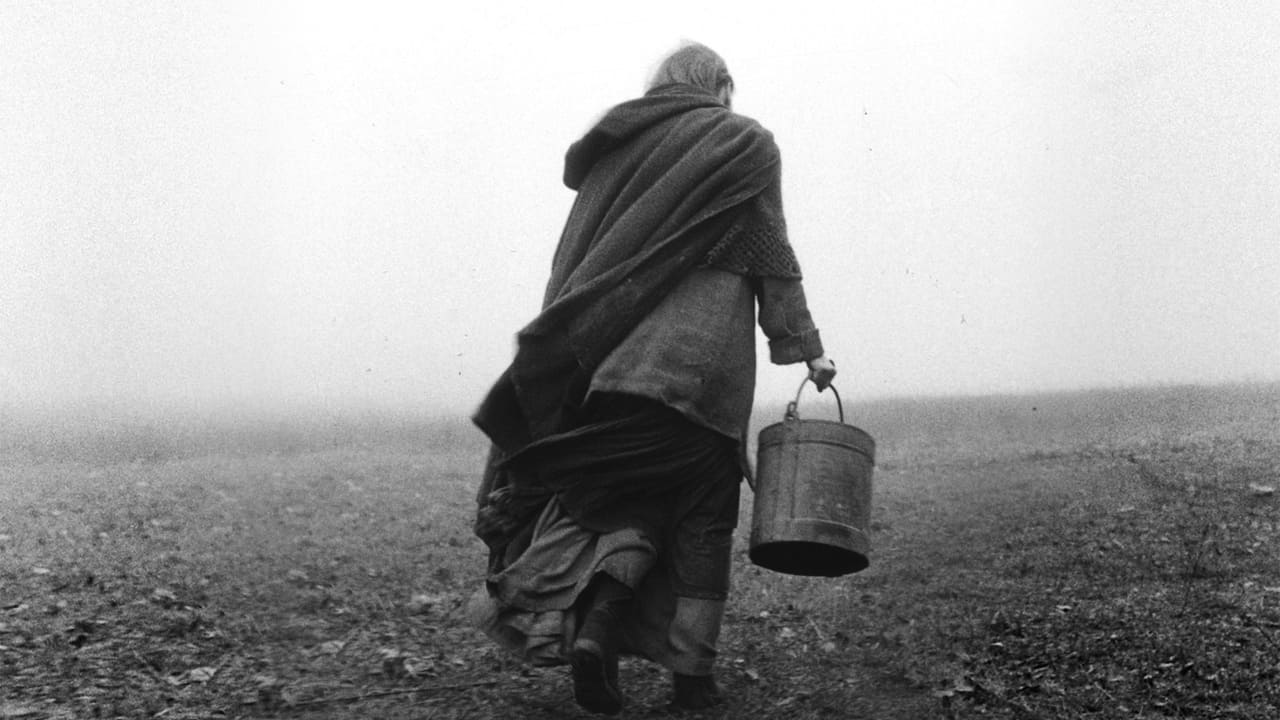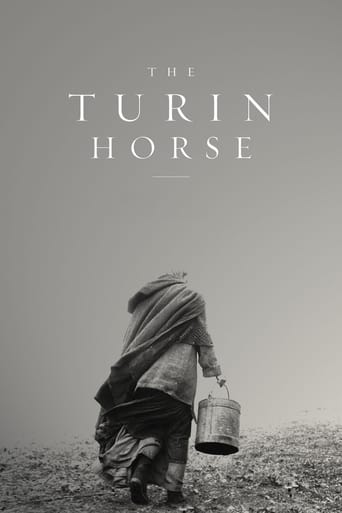Tayloriona
Although I seem to have had higher expectations than I thought, the movie is super entertaining.
Roy Hart
If you're interested in the topic at hand, you should just watch it and judge yourself because the reviews have gone very biased by people that didn't even watch it and just hate (or love) the creator. I liked it, it was well written, narrated, and directed and it was about a topic that interests me.
Tyreece Hulme
One of the best movies of the year! Incredible from the beginning to the end.
shaghikmane
Sure it's supposed to be boring and make you wanna kill yourself whilst watching it but i dont care. a movie doesnt become automatically good if it did what it wanted to do
Andres-Camara
The movie begins with a plane of a horse pulling a cart that lasts four minutes twenty seconds, The amount of things that must count! No, it does not count anything that has not been counted in the first five seconds and would be long.This type of films that, because some critics say, have to go to the history of cinema, I hope they never get to do it. Because the truth is that history, the film has little.I would give just as much as thirty planes or five hundred, the problem is that the planes tell nothing. Once you have counted the first day, the rest is repeated. If he had done a short, surely it would have been the short of his life, but it is that each thing has its own.That obsession with making plans sequences in which the camera moves alone, without following anything, to tell anything, there are times when it leaves things totally dark or flat and you do not see what happens, if anything happens.We would say that the actors are fine, if they are great, the truth is that they are very well, and they get to do their role for two and a half hours, only their role does not have much to say.The photograph is beautiful, it gets you into that world, but in a few minutes you are bored.I do not think this movie is a movie, I would say that it does not reach a movie
alexdeleonfilm
A rural farmer somewhere in Hungary is forced to confront the mortality of his faithful horse.In competition at Berlin 2011 the Bela Tarr entry "A Torinoi Lo" (The Turin Horse) -- is arguably the most bleak, depressing and boring film ever made. It's all about two miserable people living in a miserable life in a miserable hut somewhere in the middle of nowhere and trying to get an even more miserable horse to pull a miserable wagon --all shot in miserable grimy black and grey closeups to add to the feeling of deathly claustrophobia and terminal despair. Tarr has made some interesting slow moving b/w films in the past but with this dead horse he seems to be interested only in testing the patience of even his most devoted admirers by giving them the worst of his bag of tricks in lethal doses. Stood it for maybe 25 minutes before I realized it was driving me bats and then quickly ankled my way out. Somebody says that with this film Bela has said all he has to say and will turn to other means of earning a living. Let's hope so. Bottom Line: The bleakest, depressingest and most boring film ever made. Thoroughly Abominable.
Sindre Kaspersen
Hungarian screenwriter, producer and director Béla Tarr's ninth feature film which he co-directed with Hungarian film editor Ágnes Hranitzky and co-wrote with Hungarian writer László Krasznahorkai, premiered In competition at the 61st Berlin International Film Festival in 2011, was screened in the Masters section at the 36th Toronto International Film Festival in 2011, was shot on location in Hungary and is a Hungarian production which was produced by Hungarian producer Gábor Téni, French producers Marie Pierre Macia and Juliette Lepoutre, Swiss producer Ruth Waldburger and German producer Martin Hagemann. It tells the story about a middle-aged horse owner named Ohlsdorfer who lives in a house on a farm nearby a town in Turin, Italy with his daughter and a horse. A few days after having been stopped in the nearby town by Friedrich Nietzsche where he was whipping his horse because it didn't want to move, a windstorm bursts up and the man's horse becomes increasingly resistant and will neither move nor eat. Distinctly and precisely directed by Hungarian filmmaker Béla Tarr, this quietly paced fictional tale which is narrated mostly from the two main characters' viewpoints, draws a dense and ritualistic portrayal of six days in the lives of a father who mostly sits on a chair looking out of a window and his daughter who assists him getting dressed, goes to their well every single day and makes them dinner. While notable for its distinct and atmospheric milieu depictions, sterling and low-keyed cinematography by German cinematographer Fred Kelemen, production design, costume design by costume designer Breckl János and use of sound, colors and light, this narrative-driven story about human existence where two isolated people who are living a repetitive lifestyle and who have been living together for many years are waiting for the weather and their horse to become better, depicts three interrelated and internal studies of character and contains a poignant and timely score by Hungarian composer Mihály Vig. This observational, austere and poetic drama triangle which is set in Italy during a spring in the late 19th century and where the similarities between two human beings and a horse becomes more and more apparent, their lives more and more challenging and hope increasingly intangible as the wind grows stronger and stronger, is impelled and reinforced by its stringent narrative structure, subtle character development, rhythmic continuity, distinct atmosphere, silent and contemplating characters, long and philosophical speech, describing voice-over narration, dark and mysterious undertones, the internally and externally expressionistic acting performances by Hungarian actor János Derzsi and Hungarian actress Erika Bók and the fine acting performance by Hungarian actor Mihály Kormos. An existentialistic, cinematographic and majestic statement from an accomplished auteur filmmaker which gained, among other awards, the Grand Jury Prize at the 61st Berlin Film Festival in 2011.

